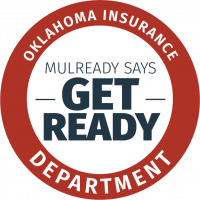
Open Enrollment for 2023 runs
November 1, 2022 – January 15, 2023
Here are some ways to get ready:
With economic concerns still weighing on many Americans and health care reform still a confusing and controversial subject, Oklahoma families should take more time than ever this year to consider their options as health insurance open enrollment begins this fall.
Rising medical costs and new coverage laws make this an opportune time to review all available options, whether you have insurance through your employer, are self-employed, or even if you are unemployed. Whatever your circumstances, health insurance choices can be complex, and the Oklahoma Insurance Department is here to help you make sense of it all.
Consider the following tips when evaluating your coverage options:
Employer-Based Group Health Insurance
If you receive health insurance through an employer, you are usually limited to open enrollment periods to make changes to your plan. Many employers expect to increase premiums, co-pays and deductibles to offset increasing health care costs, so if you have several plan options, do not automatically renew what you had this year without first making a side-by-side comparison.
Be sure current physicians and area hospitals are in the plan’s network.
Review pre-existing condition exclusions, prior authorization requirements and annual limits.
Check prescriptions you take against the list of each plan’s approved drugs for co-pay variations.
Make a list of premiums, out-of-pocket expenses, co-pays, co-insurance, deductibles, specialists and benefits for each health, vision and dental plan.
See if the cost for dependent coverage has increased. Some employers are raising costs now that coverage is available for dependents through age 26.
Ask if your employer offers a wellness program or incentives for healthy behaviors such as exercising regularly or not smoking.
In addition to health insurance, you may be able to contribute pre-tax dollars to a flexible spending account (FSA) or health savings account (HSA). Check closely to see if the list of covered expenses for reimbursement has changed since last year.
Individual Health Insurance Coverage
If you are self-employed or your employer doesn’t offer coverage, you face unique health insurance challenges, but you still have choices. Here are some on shopping for coverage:
- First, investigate the cost of being added to your spouse’s employer plan.
- If that is not an option, consider shopping for private insurance that will allow you to customize care to your lifestyle, health and budget. You may be charged more based on your age, gender or health, and some pre-existing conditions may not be covered. Note that recent tax law changes make it possible to deduct the cost of premiums from your taxable income.
- If you are in good health and can afford a minimum of $1,200 in out-of-pocket expenses for yourself or $2,400 for your family, you might consider a high-deductible plan. This means you will pay for basic doctor’s visits and prescriptions out of pocket, but have coverage if needed for major medical care such as surgery or disease treatment.
If you have a pre-existing condition and have been uninsured for at least the last six months, you may qualify for the new Pre-existing Condition Insurance Plans (PCIP).These plans offer a range of benefits, including primary and specialty care, hospital care and prescription drugs. They do not charge a higher premium because of a medical condition and do not base eligibility on income. - Many professional or philanthropic associations offer affiliate or association health plans. For a fee, you can join these organizations and have the ability to purchase insurance similarly to how you would through an employer.
Health Insurance When Unemployed
If you lost your job last year, you were likely forced to determine how, or whether, to continue your health insurance. Now is a good time to review your decision and determine if your choice is still appropriate. In addition to the options above, the Consolidated Omnibus Budget Reconciliation Act (COBRA) gives unemployed workers the right to temporarily purchase health insurance through a former employer. Although this option requires you to pay the entire premium yourself, it can provide more comprehensive coverage than a more restrictive or costly individual plan.
- COBRA coverage is typically available for up to 18 months after losing a job, but in some circumstances benefits can be extended for up to 36 months.
- If you were previously employed by a smaller company, check to see if your state has a “mini-COBRA” law that extends coverage to employees of companies with fewer than 20 workers.
If you have been unemployed awhile and your family income has taken a significant hit, you and/or your children might qualify for Medicaid or Oklahoma’s SoonerCare program. Medicaid is available to low-income children, parents with dependent children, the permanently disabled, and individuals over the age of 65. SoonerCare provides low-cost health insurance coverage for children in families who earn too much income to qualify for Medicaid, but can’t afford to purchase private health insurance.
If you are a veteran, see if you qualify for free or reduced price treatment at a Veterans Affairs (VA) hospital or clinic near you.
For any other questions or concerns you might have about insurance in Oklahoma, visit the Oklahoma Insurance Department online at http://www.ok.gov/oid/, or call our Consumer Assistance team at (800) 522-0071.
